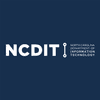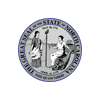What are the best practices in digital literacy and what additional research and innovation are needed because evidence isn’t yet available?
Share this project
Topics
Project Overview
Summary
At least 1.1 million North Carolina households lack access to high-speed internet, cannot afford it, or do not have the skills needed to take advantage of the digital economy. In today’s world, having access to affordable high-speed internet and having the devices and knowing how to use digital tools (internet adoption) are necessary for full participation in most sectors, from healthcare to education, economic development, agriculture, and beyond.
In 2021, North Carolina became the first state in the nation to create an Office of Digital Equity and Literacy (ODEL), part of the state's Division of Broadband and Digital Equity. In the same year, North Carolina allocated $971 million of American Rescue Plan Act (ARPA) and state funding to address internet access and another $50 million to advance internet affordability and adoption. With this investment, ODEL is 1) prioritizing internet affordability through Affordable Connectivity Program enrollment, 2) creating device access for low-income households, 3) increasing digital literacy training and building, and 4) building capacity for community partners. To achieve the latter two goals, ODEL expects to invest most of its ARPA dollars in digital equity solutions through a Digital Equity Grant Program, which was launched in fall 2022, and will have several rounds of funding through 2023.
While government funds will go a long way towards providing sustained accessibility and at least temporary affordability, significant needs remain regarding adoption. This presents an opportunity to create a robust partnership between government, philanthropy, and nonprofits to help North Carolina become the most digitally inclusive and equitable state in the country.
As state government and the philanthropic community consider how to make responsible investments in digital literacy efforts, it will be important to know what evidence-based digital literacy programs exist, and what investments in innovation and research are needed because evidence isn’t yet available? This project would conduct a literature review to answer those questions.
Deliverables
Though a topic of academic study for many years, more information is needed to develop a common definition of “digital literacy” and measures for assessing it. These deliverables highlight available research on efforts to close the digital divide (see “Digital Literacy and Equity: Key Concepts and Best Practices”) and the need for further examination of elements that indicate digital literacy and related measures (see “Synthesis of Findings for Covered Populations”).
- Literature Review: Digital Literacy and Equity: Key Concepts and Best Practices
- Brief: Synthesis of Findings for Covered Populations
- Literature review resources: This includes links to articles reviewed to develop the accompanying briefs, "Synthesis of Findings for Covered Populations" and "Digital Literacy and Equity: Key Concepts and Best Practices."
- Digital Literature Review Map: This graphic organizer provides an overview of the resources included in the literature review spreadsheet.
- NC Assets catalog: This spreadsheet includes a some of the existing digital equity and inclusion programs, organizations, and resources in NC that may support efforts to address the state's digital equity gaps. (For a PDF version of this spreadsheet, click here.)
These project deliverables are also available on the Friday Institute's NC Digital Equity Plan website.
Planned use of results
Results will be shared with NCDIT, OSP, and philanthropies interested in investing in digital literacy alongside state government. See project summary above for additional information.
Funding
The Duke Endowment is providing funding for this project.
Data
OSP, agency partners, and research partners work together to assess what data would advance a project, whether the data is already collected and available and/or whether and how to collect and share it. See project summary above for additional information.
Project Team

NC Department of Information Technology

NC State University
